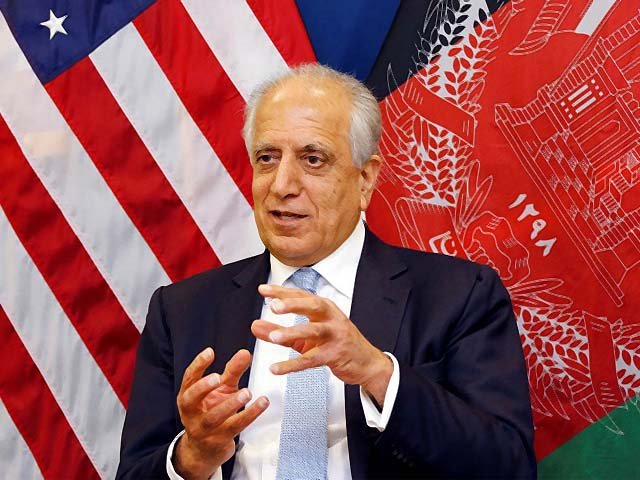US Special Envoy to Afghanistan Zalmay Khalilzad will attend Thursday’s Afghan peace talks in Moscow in the strongest sign yet of American support for Russia’s key role in this process. His Russian counterpart Zamir Kabulov earlier proposed the creation of an interim coalition government between Kabul and the Taliban, an idea that was soon thereafter picked up and promoted by Khalilzad. This proves that America is following in Russia’s diplomatic footsteps in Afghanistan, which creates a unique opportunity for these two rival Great Powers to find some common ground between them despite their many differences elsewhere across Eurasia.
The US usually doesn’t ever miss an opportunity to criticise whatever Russian officials may say, but it interestingly declined to do so after Russian Foreign Minister Lavrov clarified during his visit to the Qatari capital last week that the Moscow and Doha peace processes aren’t competing with one another. This speaks to America’s pragmatic stance in tacitly cooperating with Russia on resolving the long-running war in Afghanistan. Of course, the US would probably have preferred that Russia never became a key player there, but it’s powerless to change this new state of affairs after all regional stakeholders accept Moscow’s position.
This also includes India, though there was recently some controversy within the country over it not being invited to this Thursday’s talks. Fake news reports wildly circulated claiming that Russia “kept India out” of this process at the behest of Pakistan, which I debunked at the time in my pertinent piece for The Express Tribune and was also officially condemned by the Russian Embassy in India. The latter emphasised that “India plays very important role in Afghanistan, and its eventual deeper involvement in dedicated dialogue formats is natural”, which demonstrates that Moscow isn’t against New Delhi’s participation in principle.
Nevertheless, as I pointed out in my earlier mentioned piece, India had hitherto declined to participate in previous rounds of the Moscow peace process in an official capacity, which in turn made Russia question how seriously its partner was committed to this dimension of the peace process. Perhaps due to that observation, the political decision was made only to invite the most serious stakeholders in the conflict, which include both warring Afghan sides, the US, China, and Pakistan. Qatar was also invited as an “honorary guest” because it hosts the complementary Doha peace process and thus has extensive experience dealing with this conflict.
The larger trend at play is that Russia is diversifying its so-called “Pivot to Asia” away from its erstwhile perceived dependence on China and towards South Asia through its new role in resolving the Afghan War. In parallel with this, Russia had also been expanding its influence in West Asia through its leading diplomatic role in Syria through the Astana peace process and most recently by brokering a ceasefire between Armenia and Azerbaijan in the South Caucasus. Altogether, the intention is to increase the viability of Russia’s Eurasian “balancing” act, which necessitates Moscow becoming more deeply involved in the supercontinent’s affairs.
America’s tacit recognition of Russia’s new role in the Afghan peace process is akin to a diplomatic coup in this respect. Not only does it show that the country is capable of making impressive progress on resolving one of modern-day Eurasia’s longest-running wars in just a few years’ time since it first hosted the Taliban back in 2019, but it also helps diversify Russia’s “balancing” act by bringing the Eurasian Great Power closer to bridging the gap between its “sphere of influence” in Central Asia and the increasingly geostrategic region of South Asia. Observers should thus pay closer attention to Russia’s southern-directed policies going forward.
































